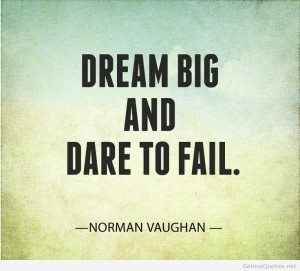Effectively Coaching Older People

The ability to coach older people is definitely becoming a required arrow in your quiver.
While this is a very complex area full of details to master, it’s most important for coaches to understand that older people are likely to be different from younger ones with ostensibly the same skills and aspirations, perhaps as follows:
1) Some older people may have greater difficulty than younger people in changing to new methods or mastering new technologies. They may be less comfortable with the new ways of thinking, communicating, and accomplishing goals, and they may be slower to adapt to newer procedures. Some older people may become irritable when pressed to keep up or step up.
2) Some older people have reduced physical agility and strength. In certain situations, this may not be a significant handicap. But if they are interested in projects or careers that involve physical requirements, such as field work or heavy lifting, their limitations can create problems or compromise productivity. What’s more, some older people won’t readily acknowledge their reduced capabilities, or the problems this poses.
3) Some older people are longer operating at their peak of efficiency and productivity. Although their performance may still remain acceptable, they may complain about or resent any sign that others are more capable than they.
4) Some older people may have difficulty accepting coaching from younger people. Older people, for example, may be far and away more qualified than others at handling specific responsibilities and tasks. But for a variety of reasons, they may be reluctant to take advice or suggestions from a coach who knows less or has a shorter track record.
Some older people may exhibit a perfectly contemptuous attitude toward young people — especially those trying to provide coaching. The problem can be made worse if the older person actually does know more than you about their work.
ADVANTAGES
Despite these potential problems, older people often have the advantages of special strengths and “seasoning” that make them capable of achieving as much or more success as those who are younger. For example:
1) Some older people are extremely motivated to succeed. They not only take a great deal of pride in their capabilities and their results, they may literally define themselves as what they do.
2) Some older people respond especially well to coaching, and can change faster and accomplish more with relatively little direct intervention, compared with less-seasoned, less-experienced people.
3) As a group, older people tend to post much better performance statistics in employment and productivity-oriented situations than comparable younger people. They are more frequently on time, more reliable, and earn higher ratings from those who evaluate their work. They also take fewer days off due to personal problems and child-care emergencies.
SENSITIVE TECHNIQUES
To compensate for these problem areas and capitalize on an older person’s strengths, coaches should make conscious attempts to utilize more sensitive techniques and more personal approaches when working with older people.
1) Ask for their input. From time to time, make a point of asking the older person for information, such as suggestions about how best to handle a difficult issue, or where to go for information or expertise that might be required. Apart from helping the older person feel more useful, this technique will likely save you time and effort because older people can easily make a coach’s life much more difficult by putting up resistance to every inch of progress.
2) Foreshadow changes that will affect the older person. For example, if you would normally provide a younger person with one or two weeks’ notice about a new exercise or a change in procedures you’re going to encourage them to try, give the older person three or four weeks’ notice, and several interim reminders that the change is coming. It’s also helpful to provide somewhat more detailed information about exactly what you’ll expect the older person to do after the change has come into play.
3) Allow older people more time to adjust. If you would expect a typical person to take a month or two to get used to a new approach or a new way of thinking, for example, make room in your plans for the older person to have three or four months of adjustment.
Slower paced one-on-one coaching can be particularly helpful for older people, because it gives them more freedom to make mistakes and to ask questions, and also provides them with very clear direction about how to get better results under changing conditions.
As you probably recognize, older people frequently have special skills, perceptions, knowledge, and abilities that can contribute to their own success and the betterment of their organization and/or society. If you make the effort to be sensitive to them as individuals, you’ll find coaching them can be even more rewarding than coaching younger people.
by Robert Moskowitz
Cristina Madeira, certified Executive and Team Coach by ICF
More about this subject

